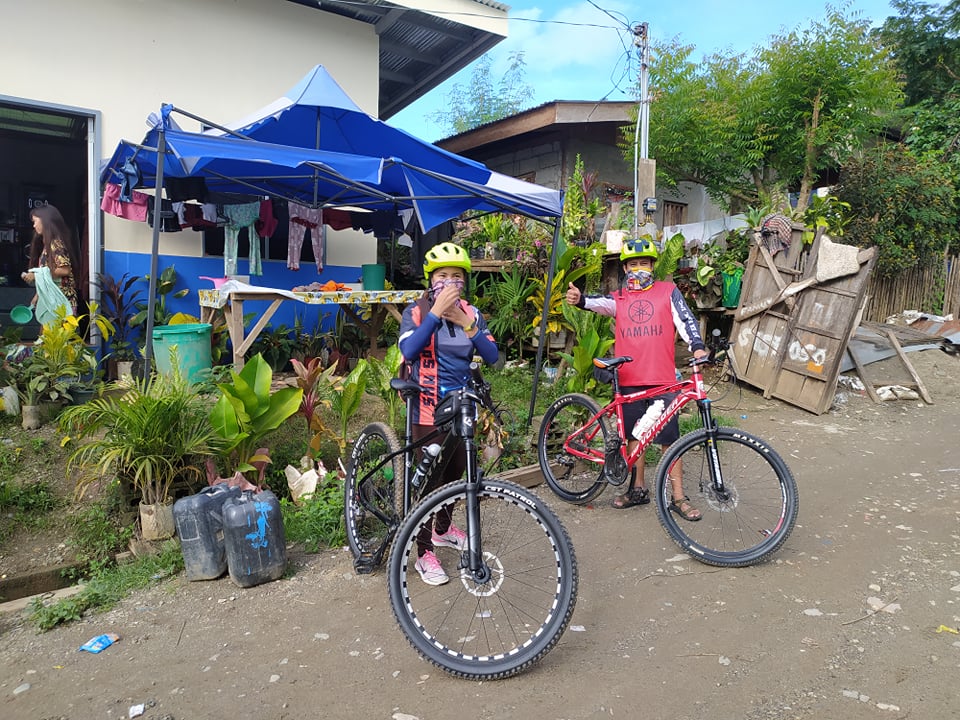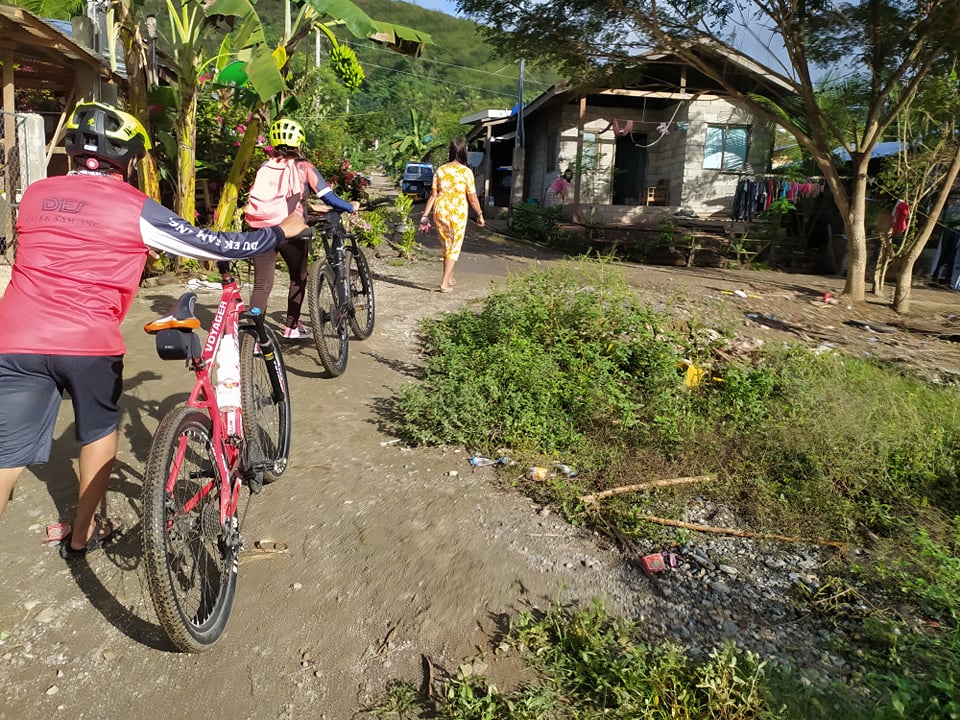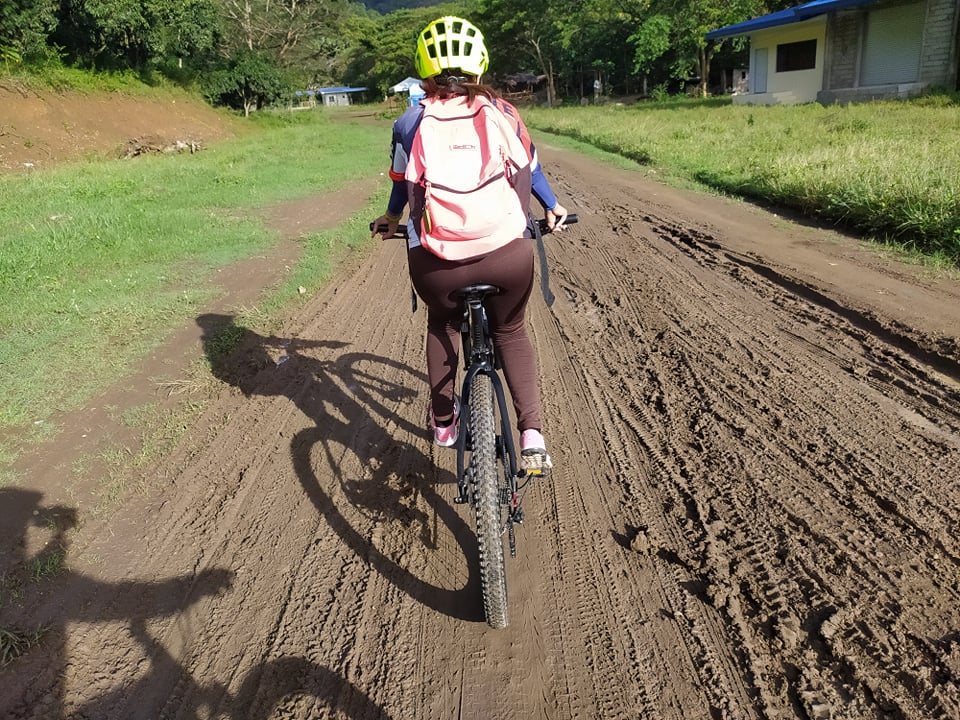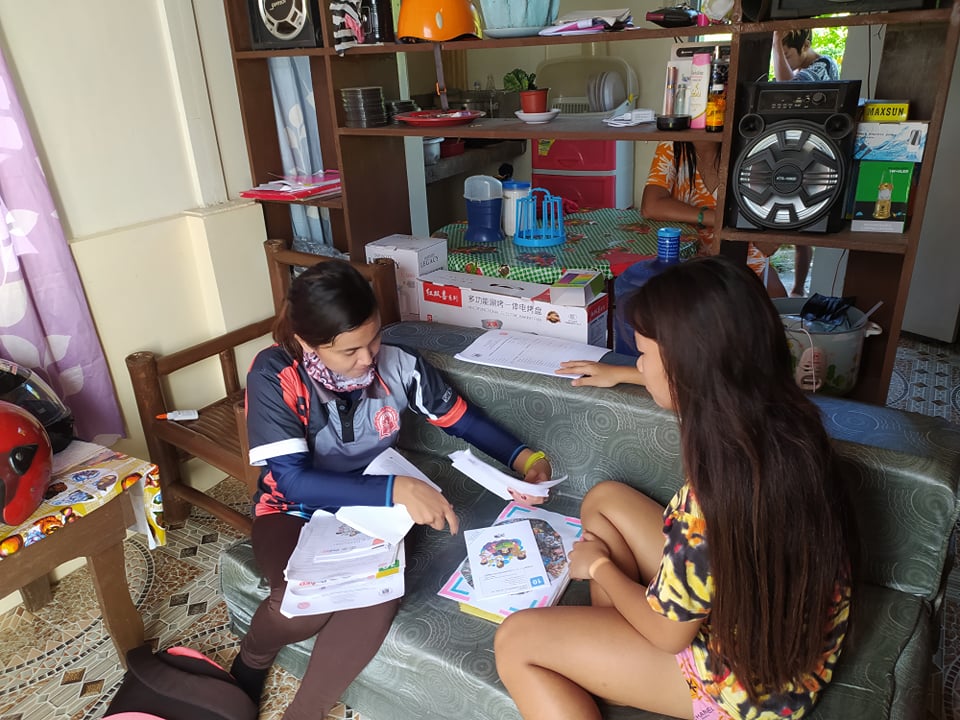No circumstances can change the love and compassion of a teacher to make education accessible even to the most distant places in Barangay Badas, Mati City.
With the Covid-19 pandemic limiting the access to quality education, Sheryl Mae B. Cose, a Grade 10 adviser in Badas National High School, turned to bicycle to reach out to her students with academic struggles.
While others turn to biking to stay fit, Cose, with the help of her husband, used biking to visit and deliver the intervention materials to the homes of her struggling learners.
“As I was collecting the summative test papers of my students from the different subjects, I noticed that there were some students who did not submit their academic requirements. From that, I immediately prepared a summary report of the list of students that I will be conducting the intervention with,” Cose said.
That’s when Cose decided to take the hike and went on her way literally to conduct remedial interventions to her students from the different parts of the Badas community from as early as November 2020.
Starting from her house in Bilawan, Barangay Central, she had to pedal to about 1 to 3 kilometers to reach the houses of her students, who are residing in the outstretch rural areas in Barangay Badas. She visited about five students from her advisory class and an additional 10 students from other sections.
“It was really heartwarming to see the faces of my students and their parents, who did not expect that I will visit their homes,” the Grade 10 adviser said.
Vergie A. Fernandez, a Grade 10 parent, expressed her joy seeing Cose personally deliver the modules right at their doorsteps.
“Nalipay jud mi nga nibisita si Ma’am Cose sa among balay ug iya jud gialalayan nga mupadayon ang akong anak sa pagskwela (We are really happy that Mrs. Cose visited our home and encouraged my daughter to continue with her studies),” Fernandez said.
Dr. Mary Jean M. Francisquete, the school principal, lauded the efforts of her teacher and pointed out that her other co-teachers are also providing the interventions, but Cose’s efforts proved to be the most unique strategy to conduct remedial interventions.
“We understand that modular learning is challenging to some of our students because they can’t comprehend on their own and their parents are also not capable to guide them. That’s why I personally made sure that our school has a comprehensive remedial intervention program that will cater the needs of our failing students,” Francisquete said.
So, even if the new normal continues to limit the potential of students in Badas, it will not stop the intense commitment and drive of those at the frontlines of education – that of Cose’s classic example – to sustain the passion to make quality education accessible even to the most distant.
By Paulo Morales





